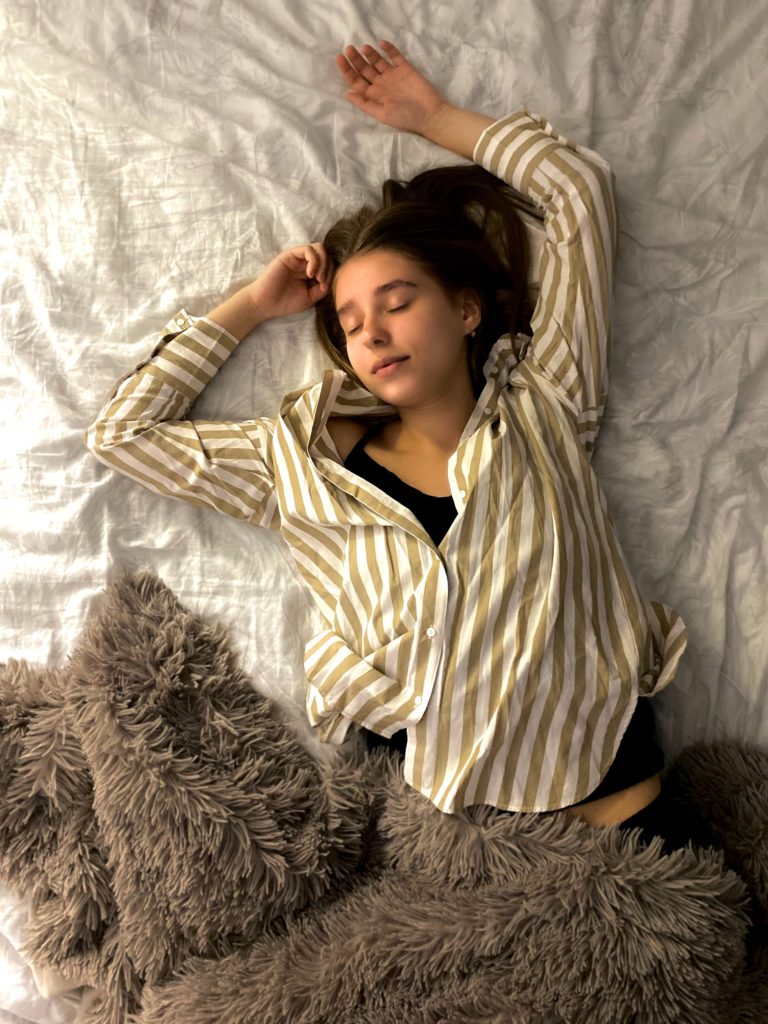Do you regularly get a good night’s sleep, dumplings? It’s no brainer that sleep is one of the most important pillars of your well-being—physically, mentally, and emotionally. Inadequate sleep leads to premature aging, inability to focus, irritability, and even loneliness, among other issues. Your body—including your brain—repairs itself during sleep, so it follows that getting plenty of zzzs sets yourself up for calm, positive mood. But surprisingly, scientists are finding that not only the quantity or even the quality of sleep matters for your mental health: the timing of sleep matters substantially more than we’d guess.
A new study by teams at the University of Colorado, MIT, and Harvard examined sleep habits of 840,000 people to determine whether chronotype—a person’s tendency to sleep at a certain time—affects depression risk. They found that early risers were far less likely to suffer from depression as night owls. In fact, shifting your bedtime and wake-up time by just one hour reduced the risk of depression by 23%.
Previous studies have also shown similar results: in 2018, a study of 32,000 nurses showed that the morning birds were 27% less likely to suffer from depression.
This leads to the question of whether someone’s personality that leads her to be a morning bird (grit, self-discipline) affects her lower likelihood of depression. And, depression often disrupts sleep patterns, so it could be a matter of depression causing late wake-up time rather than snoozing causing depression.
In order to get to the bottom of this, the researchers used DNA data. There are more than 340 common genetic variants, including “alarm clock gene” PER2, that can influence one’s chronotype. Genetics account for 12–42% of our sleep timing tendencies. Reviewing the genetic information, as well as self-reported questionnaires and medical records, found that yes, early risers (1/3 of the population) tend to be genetically predisposed to lower depression risk. But also, night owls (9% of the population) or people in the middle (roughly 60%) can cut their risk by going to bed early. If you normally fall asleep at 1 a.m. and wake up at 8 a.m., for example, you would cut your risk by 23% if you fell asleep at midnight and woke up at 7 a.m. If you did 11 p.m. and 6 a.m., respectively, you would cut the risk by about 40%—an astonishingly high rate.
There are a few hypotheses for the reason behind this phenomenon. Some research suggests that early risers get a greater exposure to natural light, which encourages hormonal balance. Another reason may be that having a bio rhythm in sync with most of society helps to boost one’s mood.
Whatever the reason, this is an important finding that can guide your sleep, especially as so many of us have a more flexible, heavily remote schedule since the pandemic. For example, barring occasional morning meetings, I have a full control over my schedule—and with summer arriving, I had been contemplating waking up either super early or staying up very late to get my work done in the cool hours of the day. This study definitely makes me think twice about going to bed late at night, with the intention of making it up with late wake-up calls and afternoon naps.
Related: I Tried These Sleep Habits From Best-Selling Book, Why We Sleep
Gentle Bedtime Yoga & Breathing Exercises For Insomnia
Get more like this—Sign up for our daily inspirational newsletter for exclusive content!
___
Photo: Milan Gaziev via Unsplash





